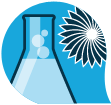Opportunity for Sensor Development:
Ammonium (NH4) probe-type sensor
CENSIS has been approached by a large pharmaceutical company that requires a probe-type NH4-N sensor to provide real-time monitoring of NH4-N concentration levels during the fermentation process.
We are seeking expertise expertise from industry and/or academia to collaborate on the development of such a sensor.
- Development Timeframe: <12 months
- Intended Application: Bio-fermentation monitoring
Sensor Details
The sensor must be autoclavable, and capable of withstanding high pressure high temperature (HPHT) levels of ~125 degrees C and 2 atmospheres during the sterilisation step for fermentation. The probe dimensions should be around 5~10 cm diameter and 30~45 cm in length, and the sensor must:
- Be autoclavable (resistant to >125 degrees C and 2 atm)
- Be reusable and deliver constant performance and reliability over lifetime (minimum three months in current fermentation conditions)
- Withstand high sensitivity
- Deliver a preferred response time of <20 seconds (<60 seconds would be acceptable)
- Have no protein precipitation
- Deliver online measurement with in-situ sterilisable NH4-N sensor
- Offer a true, temperature-compensated signal
- Offer easy handling and validation
- Ensure the product being tested remains unharmed
Further Information
 During the fermentation of bioproducts, analysis and monitoring of NH4-N concentration of the broth in real-time is required to retain optimum levels of cell growth and production.
During the fermentation of bioproducts, analysis and monitoring of NH4-N concentration of the broth in real-time is required to retain optimum levels of cell growth and production.
Commercial NH4-N sensors for fermentation processes are not currently available. Various NH4 sensors have been developed however they require room temperature and standard atmospheric conditions; they cannot be autoclaved or work at HPHT levels. While commercially available NH4-N sensors are used to monitor water and wastewater treatments, they remain unsuitable for fermentation processes due to their relatively low detection range (less than ~1g/L), and the fact that they are not autoclavable.
In fermentation processes lasting up to 140 hours, the NH4-N probe should deliver reliable, continuous and stable real-time readings. ‘Once-per-a-few-minutes’ measurement of the NH3 concentration may be acceptable if other criteria are met.
The detection range of target NH4-N sensor is from 0 to 5 g/L with the accuracy of ±0.05 g/L. The target sensor could be applied to different volumes of fermenters (from small scale (1.5L) to large production scale (400kL)).
Contact Us
If your organisation could help support this challenge, please contact CENSIS Business Development Manager, Craig Fleming, for an informal chat. Email craig.fleming@censis.org.uk or call 0141 330 4008.